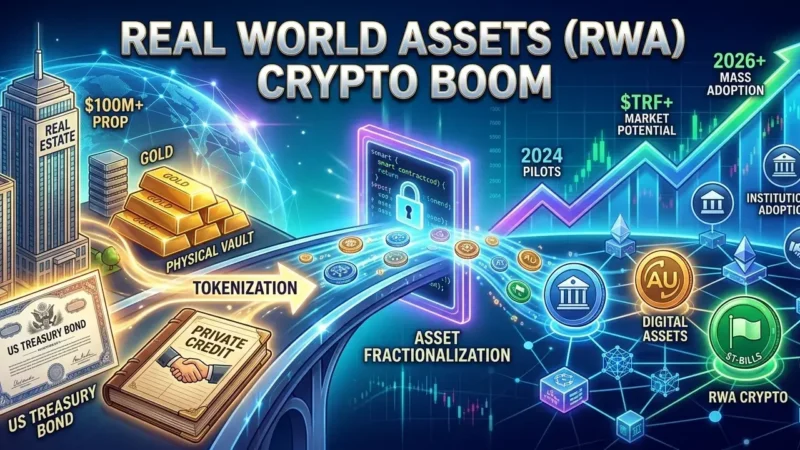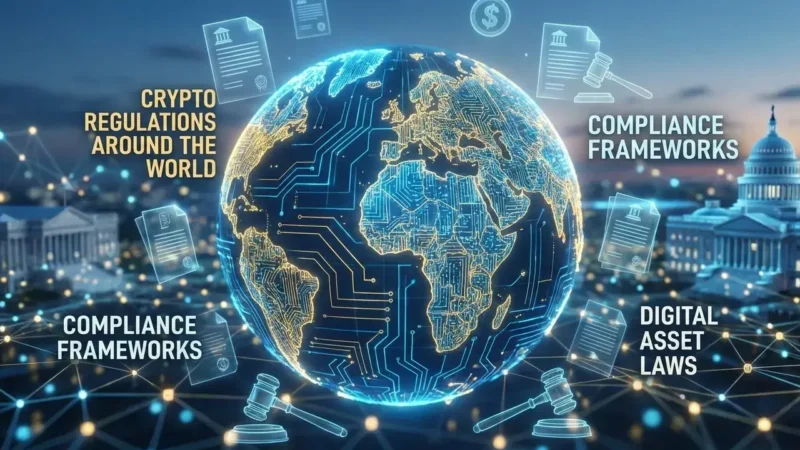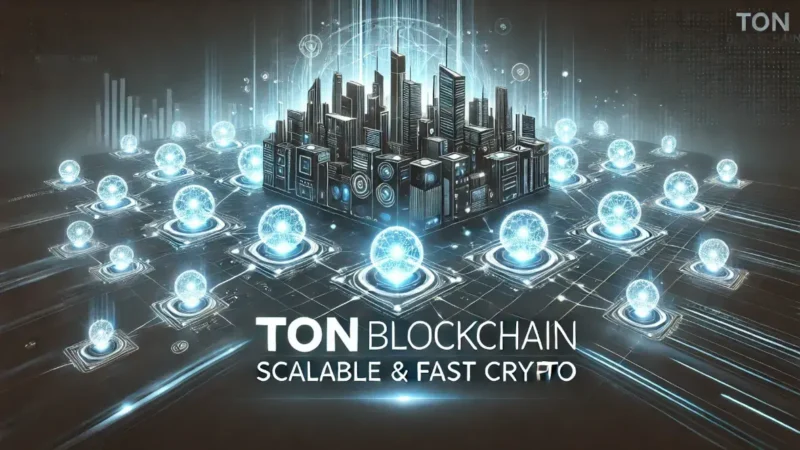Understanding Decentralized Exchanges (DEX): The Future of Trading

Introduction to Decentralized Exchanges
Decentralized exchanges (DEX) represent a transformative approach to trading in the cryptocurrency ecosystem. Unlike traditional centralized exchanges, which operate through a central authority and facilitate the buying and selling of assets, decentralized exchanges operate on a blockchain. This structure eliminates the need for intermediaries, allowing users to conduct transactions directly with one another.
Table of Contents
The key principle behind a decentralized exchange is the concept of decentralization itself. It ensures that users retain control over their funds and private keys, mitigating the risks associated with hacks and fraudulent activities that can plague centralized platforms. By leveraging smart contracts and distributed ledger technology, DEXs provide a more transparent and secure trading experience. This architecture also enables features such as peer-to-peer transactions and automated market makers, which can enhance liquidity and trading efficiency.
One significant advantage of decentralized exchanges is their heightened privacy. Users engage in trading without revealing their identities or personal information, a stark contrast to centralized exchanges that often require extensive KYC (Know Your Customer) documentation. Additionally, DEXs operate on a global scale, providing access to markets otherwise restricted by regional regulations. This fosters a sense of inclusivity, allowing users from different backgrounds to participate in the financial ecosystem.
The decentralized nature of these exchanges also reduces the risk of market manipulation and enhances the overall integrity of price discovery. By enabling users to trade directly without relying on an intermediary, a decentralized exchange encourages a fairer price-setting mechanism based on supply and demand. Overall, decentralized exchanges signify a vital evolution in cryptocurrency trading, emphasizing user sovereignty, security, and transparency.
How DEXs Work: A Technical Overview
DEXs represent a pivotal advancement in the trading of cryptocurrencies and tokens. The foundation of these platforms is built upon blockchain technology, which allows peer-to-peer transactions without the need for intermediaries. This elimination of central authority reduces the risk of hacks and fraud, ensuring greater security for users.
At the core of DEX functionality are smart contracts, which are self-executing contracts with the terms directly written into code. These contracts automate the trading process by executing trades upon meeting predetermined conditions. This not only speeds up transactions but also minimizes human error and increases trust among users, as the terms of the exchange are transparent and immutable on the blockchain.
Furthermore, many DEXs utilize automated market makers (AMMs) to facilitate trading. AMMs replace traditional order books with liquidity pools, where users can provide liquidity by depositing tokens in exchange for rewards. This model allows traders to execute orders quickly and efficiently, as they can trade directly against the liquidity pool rather than waiting for a counterparty to match their order. The algorithmic nature of AMMs also adjusts prices based on supply and demand dynamics, ensuring that liquidity is available at any time.
In addition to smart contracts and AMMs, decentralized exchanges leverage a host of protocols that enhance their performance and user experience. By utilizing cross-chain technology, DEXs are able to extend their functionality across multiple blockchain ecosystems, providing greater access to various digital assets. This interoperability is crucial for creating a more inclusive trading environment, where users can seamlessly transact across different platforms.
In summary, the operation of decentralized exchanges hinges on the integration of smart contracts, automated market makers, and blockchain technology, paving the way for secure, transparent, and efficient trading solutions in the cryptocurrency realm.
Benefits of Using Decentralized Exchanges
Decentralized exchanges (DEX) offer a myriad of advantages that appeal to both traders and investors. One of the most significant benefits is the heightened level of security that DEXs provide. Unlike centralized exchanges, which are vulnerable to hacks and breaches due to centralized control of funds, decentralized exchanges eliminate single points of failure. Users retain control over their private keys and funds, drastically reducing the risk of theft.
In addition to enhanced security, decentralized exchanges empower users with greater control over their assets. Traders can execute transactions directly from their wallets, minimizing the need to delegate control to third parties. This autonomy not only builds trust among users but also ensures that they can engage in trading without worrying about the potential insolvency or mismanagement of a centralized entity.
Privacy is another noteworthy advantage of using decentralized exchanges. Many centralized platforms require extensive personal information for account verification, raising concerns about user privacy and data security. In contrast, most DEX platforms conduct trades without necessitating the disclosure of personally identifiable information, allowing users to trade freely while protecting their anonymity.
Lower transaction fees further bolster the appeal of decentralized exchanges. Traditional exchanges typically charge high fees for trading, deposits, and withdrawals. Many DEXs employ automated liquidity protocols, lowering transaction costs and enhancing the trading experience. Furthermore, users can engage in peer-to-peer trading without government or financial institution interference, passing these savings directly onto traders.
Lastly, decentralized exchanges provide the opportunity to list a broader variety of tokens. While centralized platforms often impose strict criteria for listing, DEXs generally foster a more inclusive environment for new projects, promoting innovation and diversifying investment opportunities. This feature allows users to explore a larger repertoire of digital assets and capitalize on emerging trends in the cryptocurrency market.
Challenges and Limitations of DEXs
Decentralized exchanges (DEXs) are revolutionizing the way individuals trade cryptocurrencies. However, despite their innovative approach, they also face several challenges and limitations that may hinder their widespread adoption. One significant issue is liquidity. DEXs often struggle to provide the same level of liquidity as centralized exchanges, leading to slippage and less favorable pricing during trades. This liquidity challenge can result in traders having difficulty executing large orders without affecting the market price.
Furthermore, trading volumes on decentralized exchanges are generally lower when compared to their centralized counterparts. High trading volumes are essential for ensuring market efficiency and stability; therefore, the lack of high volume can lead to price volatility and make it harder for traders to enter and exit positions conveniently. This aspect is particularly critical in the fast-paced cryptocurrency market, where delays can result in missed opportunities.
Another limitation is the complexity associated with using decentralized exchanges. The user interfaces of many DEXs can be overwhelming, particularly for newcomers who may not be familiar with blockchain technology. Users often face challenges with wallet management, gas fees for transactions, and understanding how to interact with smart contracts, which can deter less experienced individuals from engaging with DEXs.
Addionally, transaction speed can present another hurdle, as DEXs are often reliant on the underlying blockchain’s performance. During periods of high network congestion, transactions can become slow and expensive, discouraging users from making trades. Lastly, regulatory concerns regarding compliance and legality are prevalent among DEXs, as jurisdictions continue to evolve in their stance towards decentralized finance. These challenges present significant hurdles that need to be addressed for decentralized exchanges to achieve their full potential in the cryptocurrency ecosystem.
Popular Decentralized Exchanges in 2024
As the landscape of cryptocurrency trading evolves, several decentralized exchanges (DEX) have emerged as prominent players in 2024, catering to the diverse needs of traders looking for autonomy and security. Among these, Uniswap stands out as one of the most well-established platforms. Launched in 2018, Uniswap has transformed the trading experience with its automated market-making (AMM) model, allowing users to swap ERC-20 tokens seamlessly. Its innovative liquidity pool mechanism has encouraged many users to contribute liquidity, resulting in substantial trade volumes and a robust user base.
Another noteworthy decentralized exchange is SushiSwap. Initially created as a fork of Uniswap, SushiSwap has differentiated itself with a community-driven approach and additional features such as yield farming and staking options. This DEX continues to expand its offerings, rendering it an attractive destination for traders seeking both functionality and engagement in the crypto community. Its commitment to enhancing user experience has solidified its position as a key player in the market.
PancakeSwap, operating primarily on the Binance Smart Chain, has gained popularity due to its low transaction fees and rapid trading capabilities. It has capitalized on the demand for fast and affordable trading solutions, becoming one of the largest DEXs in terms of daily trade volumes. The platform’s integration with various decentralized finance (DeFi) services, including token swaps and liquidity pools, has further augmented its reputation as a go-to platform for users seeking efficiency and functionality.
Lastly, Balancer has emerged as a unique decentralized exchange that allows users to create custom liquidity pools with multiple tokens and varying weights. This flexibility caters to sophisticated traders looking to optimize their strategies while participating in DeFi. The innovative structure of Balancer has attracted a significant amount of trading activity, enhancing its standing in the decentralized exchange ecosystem.
How to Safely Trade on a DEX
Engaging in trading activities on a decentralized exchange (DEX) requires a high level of diligence to ensure the safety of funds and assets. A critical best practice is the utilization of hardware wallets, which securely store private keys offline, reducing the risk of hacking attempts that are more common in online environments. Ensuring that your cryptocurrency is held in a hardware wallet adds an essential layer of security, as it minimizes exposure to risks associated with malware and phishing attacks typically prevalent in the digital space.
Recognizing common scams is another crucial aspect that cannot be overlooked when trading on a decentralized exchange. Scammers often employ tactics such as creating fake websites that mimic legitimate DEX platforms or using social engineering techniques to lure unsuspecting users into sharing sensitive information. Staying informed about current scams and reporting them contributes to a safer trading ecosystem. Always verify URLs and scrutinize communications that request personal information.
Moreover, employing two-factor authentication (2FA) is an effective strategy for bolstering security when accessing accounts and trading on DEX platforms. By requiring a second form of verification, typically through a mobile application or an SMS code, 2FA adds an additional layer of security that further mitigates the risks associated with unauthorized access. Setting up this feature is a simple yet powerful way to protect one’s trading account.
Lastly, conducting thorough research before engaging in trading activities on a decentralized exchange is imperative. This includes understanding the specific DEX platform’s reputation, user feedback, and any potential red flags regarding the coins being traded. By gathering sufficient information, traders can make informed decisions that align with their safety and investment goals. Taking the time to understand the nuances of DEX trading directly correlates with minimizing risks and maximizing the potential for successful transactions.
The Future of Decentralized Exchanges
The landscape of trading is poised for a significant transformation propelled by the evolution of decentralized exchanges (DEXs). As blockchain technology matures, the future prospects for DEXs appear promising, with advances expected in various dimensions, including technological enhancements, user adoption rates, and potential integration with traditional financial systems.
Technologically, we can expect decentralized exchanges to become more sophisticated, addressing current limitations such as transaction speed and user experience. Innovations such as Layer 2 solutions and improved smart contract capabilities will likely facilitate faster transaction processing and enhanced reliability. Additionally, new consensus mechanisms may emerge, ensuring that trading remains secure while increasing efficiency. As technology evolves, the user interfaces of DEXs will also need to improve, making it easier for novice traders to navigate these platforms without requiring extensive knowledge of blockchain mechanics.
Furthermore, the adoption rate for decentralized exchanges is anticipated to surge as more traders recognize the benefits they offer over traditional centralized exchanges, including better security and enhanced privacy. The increasing prevalence of cryptocurrency in everyday financial transactions will integrate decentralized platforms into the broader financial ecosystem. This shift may lead to collaboration between decentralized finance (DeFi) and established financial systems, particularly if institutions recognize the value in the transparency and traceability that DEXs provide.
As DEXs continue to grow, regulatory frameworks will play a crucial role in shaping their future. Authorities are becoming increasingly aware of the necessity to regulate digital assets to mitigate risks associated with money laundering and fraud. The outcome of these regulatory processes could either facilitate the growth of decentralized exchanges through clearer guidelines or impose restrictions that could hinder their development. Expert opinions suggest that a balance must be struck to ensure that both innovation and consumer protection are prioritized.
The Role of DEXs in Decentralized Finance (DeFi)
Decentralized exchanges (DEXs) serve as a foundational pillar in the broader landscape of decentralized finance (DeFi). They provide an essential mechanism for peer-to-peer trading, eliminating the need for intermediaries and allowing users to retain full control over their assets. This plays a significant role in fostering transparency and security within financial transactions. By facilitating direct trades between users, DEXs support various DeFi protocols that range across a multitude of financial services such as lending, borrowing, and yield farming.
One key aspect of DEXs is their ability to facilitate lending and borrowing services without the constraints of centralized financial institutions. Users can lend their assets to others who seek capital, often earning interest in return. This occurs directly on the blockchain, with smart contracts automating the terms of these transactions, thus minimizing the risk of default and ensuring that all parties are protected under transparent, pre-established conditions. Furthermore, DEXs can operate with lower fees and greater efficiency compared to traditional exchanges, attracting a broader user base looking to maximize returns on their investments.
Yield farming is another prominent use case for DEXs within the DeFi ecosystem. By utilizing liquidity pools, users can contribute their assets to various platforms to earn rewards. These liquidity pools are typically accessible only through decentralized exchanges, reinforcing the idea that DEXs not only provide trading capability but also serve as financial hubs that enable users to engage with a variety of DeFi services. This participatory model empowers users, incentivizing them to take part in decentralized finance while maximizing their asset potential.
In the evolving landscape of finance, decentralized exchanges have emerged as crucial facilitators of DeFi innovation, enabling new financial services while enhancing user autonomy and oversight over their financial affairs.
Stay informed, read the latest crypto news in real time!
Conclusion: Embracing the DEX Revolution
As the landscape of digital finance continues to evolve, decentralized exchanges (DEXs) are emerging as a transformative force in the trading ecosystem. This blog post has explored the fundamental characteristics and advantages that DEXs offer, highlighting their role in increasing liquidity, enhancing privacy, and providing users with greater control over their assets. Unlike traditional centralized exchanges, which require users to relinquish control of their funds, decentralized platforms empower individuals by allowing them to trade directly from their wallets. This shift not only fosters a more democratized trading environment but also minimizes the risk of hacking and fraud that is often associated with centralized systems.
However, it is essential to acknowledge the challenges that accompany the transition to decentralized trading platforms. Issues such as scalability, user experience, and regulatory concerns remain pertinent and require ongoing attention from developers and users alike. DEXs are still relatively new, and as such, they may not yet offer the same level of sophistication or ease of use as their centralized counterparts. Additionally, the legal landscape regarding cryptocurrency trading continues to evolve, which may impact the operational framework of decentralized exchanges.
With the rapid advancements in blockchain technology and increasing adoption of cryptocurrencies, the potential for DEXs is vast. As more users become aware of the benefits associated with these platforms, their popularity is likely to rise. It is crucial for traders to stay informed about the development of decentralized exchanges and the broader implications they have on the trading landscape. By understanding both the advantages and challenges of DEXs, traders can better navigate the future of cryptocurrency markets, making informed decisions that embrace the DEX revolution.







4 thoughts on “Understanding Decentralized Exchanges (DEX): The Future of Trading”